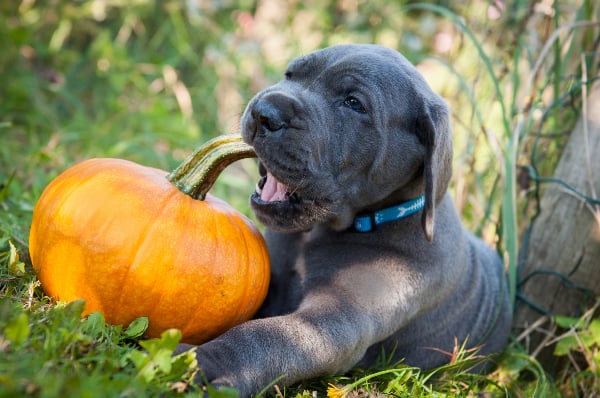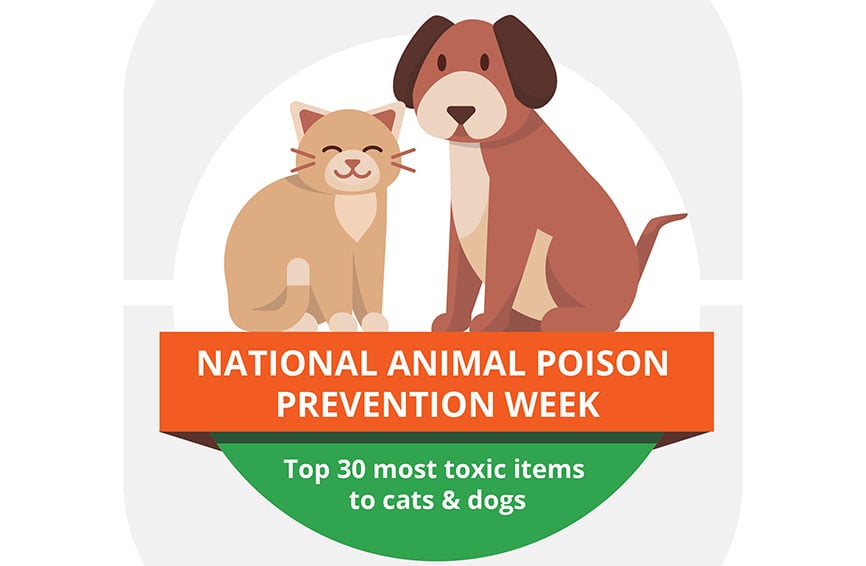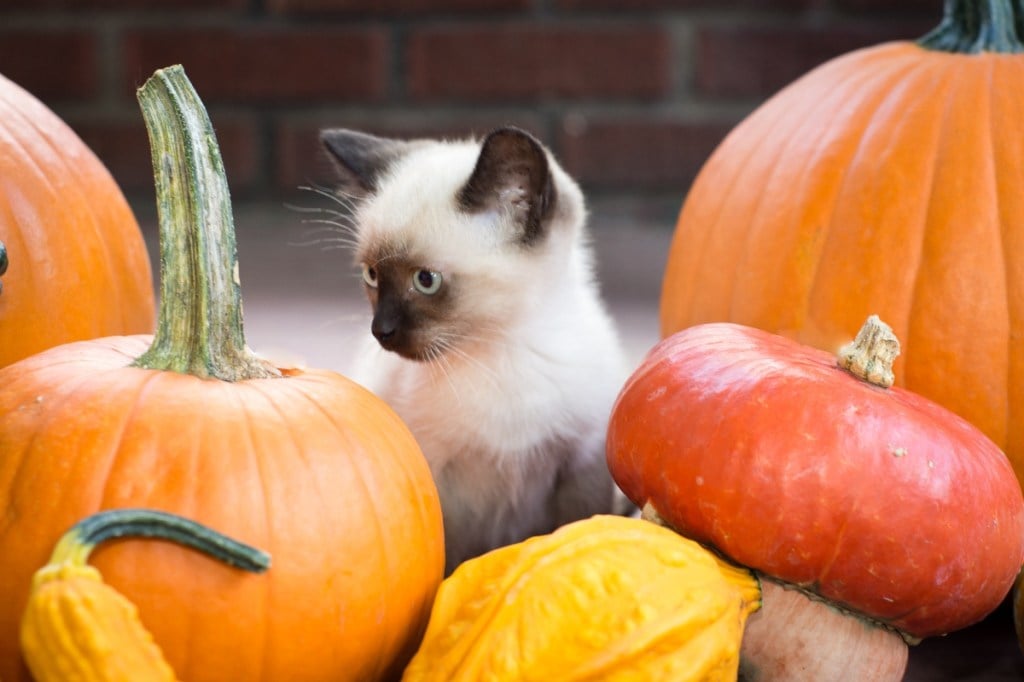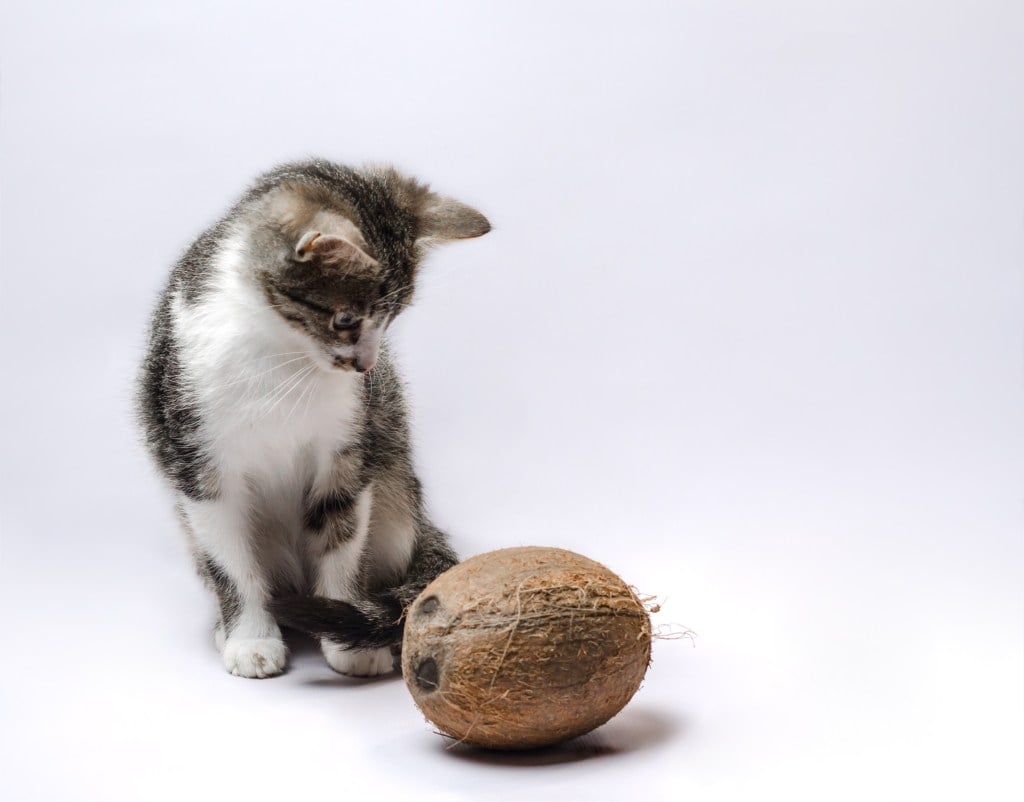Table of Contents
Yes, pumpkin and other types of squash are healthy for dogs.
NOTE: Pumpkin pie can contain toxic ingredients such as xylitol and nutmeg, so check the ingredients first.
The squash family of fruit includes pumpkins, zucchini, and many other types of squash that are safe and healthy for dogs to eat. According to About Doggies, “the following common squash types are edible for both humans and dogs: acorn, ambercup, autumn cup, banana, butternut, buttercup, carnival, delicata, fairytale pumpkin, gold nugget, hubbard, kabocha, spaghetti, sweet dumpling, turban squash and zucchini.”
Benefits of pumpkin
Pumpkins are a healthy fruit that are full of beneficial nutrients, including:
- Protein
- Beta carotene
- Copper
- Magnesium
- Dietary fiber
- Vitamins A, C, and K.
Find out more about the benefits for both cats and dogs in our article, 3 Health Benefits of Pumpkin for Dogs and Cats.
How much pumpkin should I give my dog for diarrhea/constipation?
Consuming pumpkin can be quite beneficial to pets—in fact, veterinarians often recommend canned pumpkin for dogs that have an upset tummy, diarrhea, or constipation. Canned pumpkin is 90% water and contains soluble fiber; a combination that is helpful in balancing the digestive system. However, pumpkin shouldn’t be used as a cure-all, so be sure to consult with your vet if your pup continues to experience tummy issues or has other symptoms.
- Small dogs with mild cases of diarrhea: 1800PetMeds suggest pet parents of small dogs to “start with a ½ teaspoonful, increasing to one or two teaspoons if necessary.
- Large dogs with mild cases of diarrhea: Start with a tablespoonful of canned pumpkin and slowly increase the amount if needed.” For more serious cases, seek veterinary care.
How to serve pumpkin to your dog
Whichever type of squash you choose to serve, be sure that it’s fresh (or canned) and plain. Don’t allow your dog to munch on the jack-o-lantern sitting on the front porch, rotting squash, or any other squash that you wouldn’t want to eat.
Some summer squash varieties like zucchini can be eaten raw or cooked with the peel and seeds intact (so long as it was washed first). Cut zucchini into bite-sized slices and see if your pup likes the taste.
Winter squashes, like pumpkin and butternut squash, should be cooked first because they can be difficult for your dog to chew and digest. After removing the peel and seeds, you can serve plain winter squashes boiled, steamed, or canned. Just be sure there are no added spices, salt, flavorings, or oils. When purchasing canned pumpkin for your dog, choose 100% pure pumpkin and not pumpkin pie mix, which includes spices like nutmeg and added sugar. Mix a spoonful of pureed or canned pumpkin with your dog’s dinner or serve a few bite-sized cubes of cooked squash as a snack.
What about pumpkin seeds? Don’t worry because pumpkin seeds are safe to share with your dog, too. Pumpkin seeds can be eaten raw or roasted (again, they should be plain, without any added salt, oils, or spices).
Hazards of pumpkin
Even when cooked, the tough outer skin of a winter squash can be difficult to digest and poses a choking hazard. If swallowed, it may also cause an internal obstruction, especially in smaller breeds. Pumpkin seeds might also pose a choking hazard for some dogs.
Though squash is healthy for dogs and can help with tummy troubles, it is possible to have too much of a good thing. Overfeeding pumpkin or squash to your dog can worsen tummy troubles and diarrhea.
Finally, we’d like to reiterate that pumpkin and other squash should only be served plain. Spices, sugar, salt, and oils can be dangerous to feed to your dog, so it’s best to simply avoid them.
Want to find out more about what dogs can and cannot eat? Check out our comprehensive guide for more information on “What Human Foods Dogs Can and Can Not Eat.”








